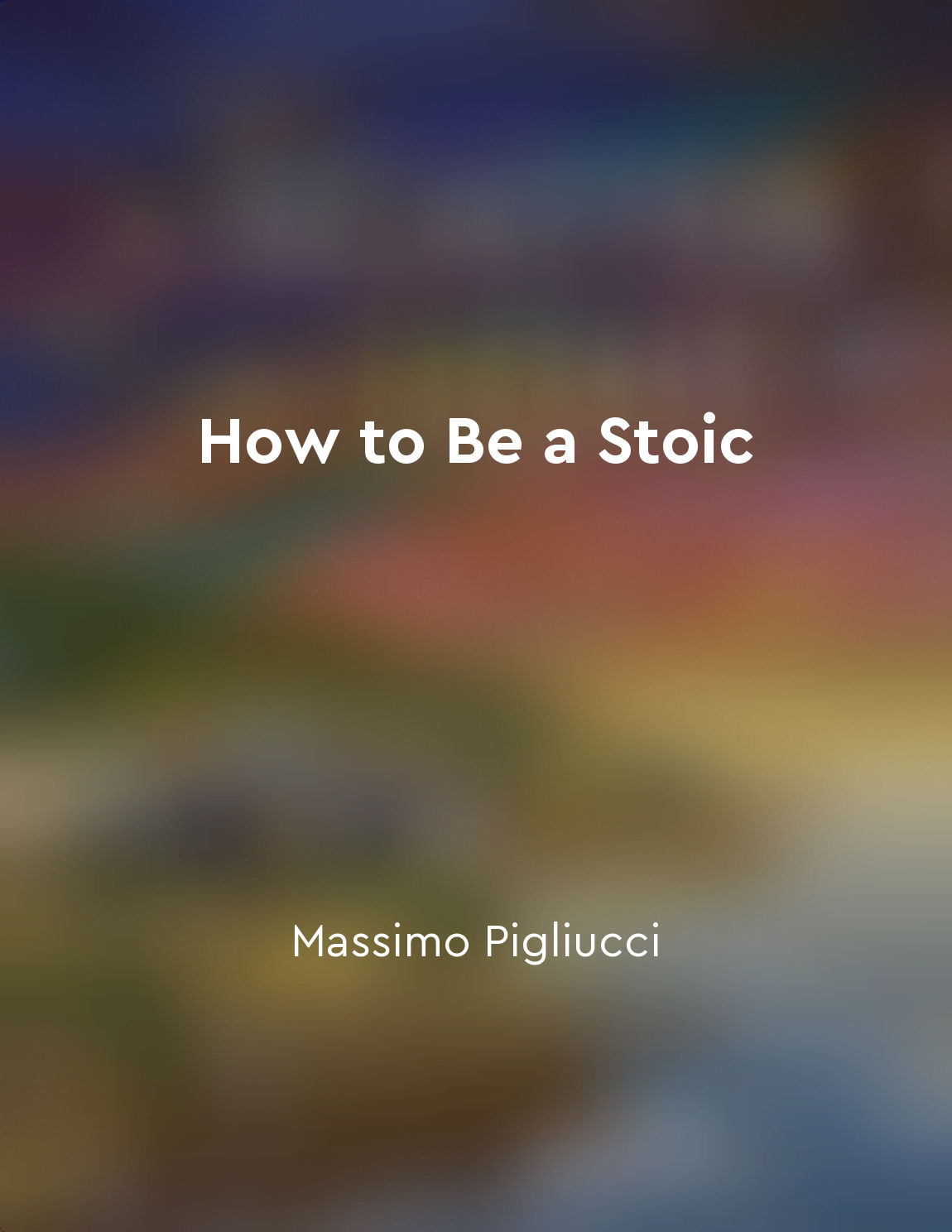Being content with what we have is a key Stoic virtue from "summary" of Stoicism and the Art of Happiness by Donald Robertson
The Stoics believed that one of the key virtues to cultivate in order to lead a good and fulfilling life is contentment. This virtue entails being satisfied with what we have and not constantly desiring more. The Stoics argued that true happiness does not come from external possessions or achievements, but from within ourselves. By learning to be content with the present moment and what we already possess, we can free ourselves from the endless cycle of desire and dissatisfaction. Contentment is closely related to the Stoic principle of living in accordance with nature. The Stoics believed that nature provides us with everything we truly need, and that we should accept what comes our way with gratitude and equanimity. In practicing contentment, we learn to appreciate the simple pleasures of life and not to be swayed by external circumstances. This does not mean that we should not strive for improvement or success, but rather that we should not base our happiness on achieving certain goals or acquiring specific possessions. By cultivating contentment, we can learn to find joy and fulfillment in the present moment, rather than constantly looking to the future for happiness. This does not mean that we should become complacent or stop striving for personal growth, but rather that we should learn to be at peace with what we have and where we are in life. Contentment allows us to experience a sense of inner peace and tranquility, even in the face of difficulties or setbacks. In a world that constantly bombards us with messages of dissatisfaction and unfulfilled desires, practicing contentment can be a radical act of self-care. By learning to be happy with what we already have, we can free ourselves from the grip of consumerism and materialism. Contentment is a key Stoic virtue that can bring us closer to a life of wisdom, virtue, and true happiness.Similar Posts
Greece's ancient culture had a profound impact on Western civilization
The influence of ancient Greece on Western civilization is immeasurable. From philosophy to art, politics to literature, the le...
Manage our emotions and desires
The Stoics were adamant about the importance of controlling our emotions and desires. They believed that our emotions and desir...
Accept fate with equanimity
The wise man will never seek to evade fate; he accepts all that life brings him, knowing that it is the will of the gods. To fi...

Practicing mindfulness is essential for a Stoic way of life
Mindfulness plays a crucial role in the Stoic way of life. The Stoics believed that being present in the moment allows us to fu...

Acceptance of things beyond our control is a key Stoic teaching
The Stoics teach us to recognize the limits of our control. They remind us that there are some things in life that are simply b...

The practice of Stoicism provides practical strategies for coping with daily stressors
Stoicism, as a philosophy, offers valuable insights and practical techniques for managing the challenges and pressures of every...
Finding joy and fulfillment in the present moment is the key to living a meaningful life
The Stoics believed that the key to living a meaningful life lies in finding joy and fulfillment in the present moment. This co...

Practice selfcontrol and emotional resilience
The Stoics were particularly interested in the concept of self-control and emotional resilience. They believed that our emotion...

Practice resilience in the face of adversity
The Stoics believed that adversity is an inevitable part of life, and that the key to dealing with it effectively is to cultiva...
Through practicing virtues, we can achieve a state of tranquility
The Stoics believed that practicing virtues was essential to achieving a state of tranquility. They saw virtues as the key to l...
